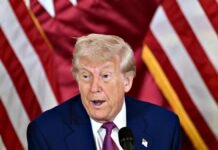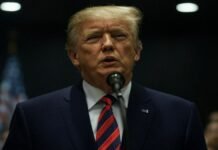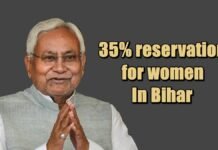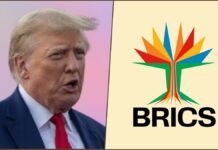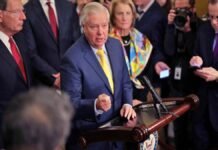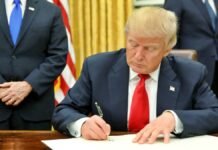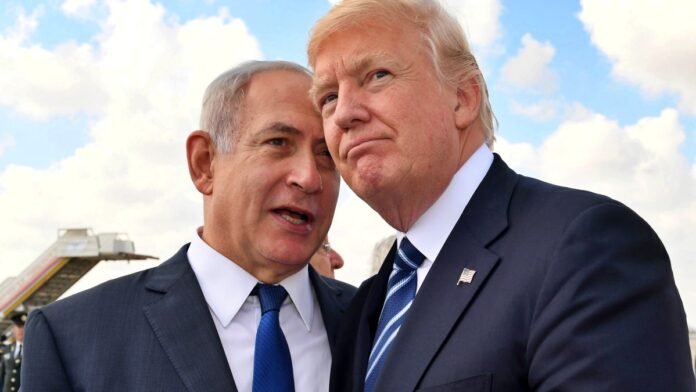
Key Points:
- Netanyahu’s Visit: Israeli Prime Minister Benjamin Netanyahu is set to meet US President Donald Trump at the White House on April 7 to discuss the newly imposed 17% tariff on Israeli exports.
- Tariff Fallout: Trump’s sweeping global tariff policy has impacted 60 countries, with Israel’s machinery and medical equipment exports being significantly affected.
- Broader Agenda: The meeting will also address critical regional issues, including Iran’s nuclear program and the ongoing conflict in Gaza.
New Delhi: Israeli Prime Minister Benjamin Netanyahu is scheduled to visit the White House on Monday, April 7, to discuss the recent imposition of a 17% tariff on Israeli exports by the United States. This visit makes Netanyahu the first foreign leader to engage directly with President Donald Trump on his controversial new trade policy, which has targeted 60 nations with tariffs ranging from 10% to as high as 50%.
The tariffs, announced as part of Trump’s “Liberation Day” trade policy earlier this week, have disrupted global markets and strained diplomatic relations. For Israel, the 17% tariff impacts key sectors such as machinery and medical equipment exports to its largest trading partner, the US.
Israel’s Response to Tariffs
In an attempt to preempt US tariffs, Israel had earlier eliminated all remaining duties on American imports. However, this move did not exempt Israel from Trump’s sweeping trade measures. During a phone call on April 3, Netanyahu raised concerns about the tariffs with Trump, who subsequently invited him for face-to-face discussions in Washington.
Israeli Finance Ministry officials have expressed concerns over the economic impact of these tariffs. “This could significantly affect our export-driven industries,” said an official. Despite a free trade agreement signed four decades ago that exempts most US goods from Israeli tariffs, Trump justified the new duties by citing a trade imbalance between the two nations.
Meeting Agenda: Beyond Tariffs
While tariffs will dominate discussions, Netanyahu and Trump are also expected to address other pressing regional issues:
- Iran’s Nuclear Program: With tensions escalating in the Middle East, both leaders are likely to strategize on countering Iran’s growing nuclear ambitions.
- Gaza Conflict: The ongoing hostilities between Israel and Hamas in Gaza will also feature prominently. The US has been mediating efforts for a ceasefire and the release of hostages held by Hamas.
This will be Netanyahu’s fourth visit to the US since renewed military operations in Gaza began last year and his second meeting with Trump since January.
Trump’s Global Tariff Policy: A Game-Changer
Trump’s new tariff regime marks one of the most aggressive shifts in US trade policy in decades. Key details include:
- A baseline 10% tariff on all imports starting April 5.
- Higher “reciprocal” tariffs for countries with significant trade surpluses with the US. For example:
- China faces a total tariff of 54%.
- The European Union is subject to a 20% tariff.
- Vietnam and Cambodia face rates of up to 49%.
Israel’s inclusion in this list has surprised many analysts given its close alliance with the US. Trump defended his decision by pointing out that even allies must contribute fairly to reducing America’s trade deficit.
Broader Implications
Netanyahu’s visit comes amid growing global backlash against Trump’s tariffs:
- China: Announced retaliatory tariffs of 34% on US goods starting April 10.
- European Union: Preparing countermeasures targeting American exports.
- Developing Nations: Countries like Vietnam and Cambodia face some of the highest tariffs, raising fears of economic instability.
The tariffs have already triggered a $5 trillion decline in global stock markets, with major indices like the S&P 500 experiencing their worst performance since the COVID-19 pandemic.
What’s at Stake for Israel?
For Israel, securing an exemption from these tariffs is critical. The US accounts for nearly one-third of Israeli exports, making it a vital economic partner. Key industries such as technology, defense equipment, and medical devices could face severe disruptions if no resolution is reached.
Political analysts believe Netanyahu’s ability to negotiate favorable terms will not only impact Israel’s economy but also shape his domestic standing amid ongoing corruption trials.
Prime Minister Benjamin Netanyahu’s upcoming meeting with President Donald Trump is pivotal for addressing Israel’s inclusion in America’s new tariff regime. As global tensions rise over these sweeping trade measures, all eyes are on whether Netanyahu can leverage Israel’s strategic alliance with the US to secure relief. Beyond trade, this high-stakes meeting will also tackle critical geopolitical challenges, making it a defining moment for both leaders.





